On the third conference day, Friday 5 September, between 9:00 and 12:30, we invite participants to discover research labs on the EPFL campuses of Lausanne and Fribourg, before an informal gathering with farewell drinks and snacks.
Participants are invited to register online through their conference account. The number of places in each tour is limited. If the tour of your choice is fully booked, please feel free to contact us and we will gladly add you to the waiting list.
LAUSANNE CAMPUS VISITS
SCHEDULE (approximate)
Luggage consignment: 08h45-13h30 in Swiss Tech Convention Center
FRIBOURG CAMPUS VISIT
SCHEDULE
NOTES
Please note:
- Your luggage can be left in the bus if you intend to take the shuttle both ways. Otherwise, there will be a room to deposit it at Smart Living Lab.
- The shuttle bus will not be waiting for missing passengers.
- If you wish to go your own way after this visit, please note that the railway station is very close, with excellent connections to Lausanne (50'), Geneva Airport (1h45) and Zurich Airport (1h50): timetables and tickets.
Take advantage of your trip to Fribourg to visit its old city, which sits on a rocky hill above the river Sarine! For information see website of Fribourg tourism. There are frequent train connections back to Lausanne as well as to Geneva and Zurich Airport. Luggage can be deposited at the railway station.
Lausanne Tour A – Thermal Systems
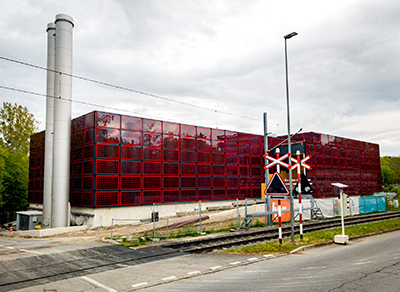
100% renewable power plant
In Lausanne Tour A
Thanks to thermal heat exchange with the nearby Lake Geneva and a thermal plant using the latest technology, heating and cooling of the whole EPFL campus is provided entirely without fossil fuels. A data center installed above the plant is cooled by the cold water discharges from the power plant and will in turn provide heat from the servers. The building is fully cladded with photovoltaic façade elements.
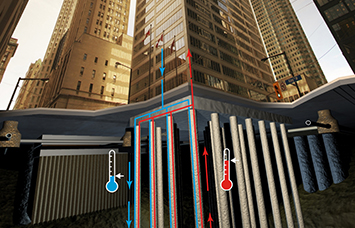
Digging deep: geothermal systems and CO2 sequestration
In Lausanne Tour A
Geothermal systems and CO2 sequestration in deep geological formations are the focus of this visit to the EPFL Laboratory of Soil Mechanics LMS. Research at LMS investigates energy geostructures that can serve as structural supports as well as heating and cooling elements for building and infrastructures. Furthermore, it explores the potential of CO2 capture and storage in depleted oil or gas reservoirs, saline formations and coal seams based on structural, stratigraphic and chemical trapping mechanisms. The world's first geothermal panel marketed by the LMS spin-off Enerdrape will also be presented.
Lausanne Tour B – Smart Grid & Renewables
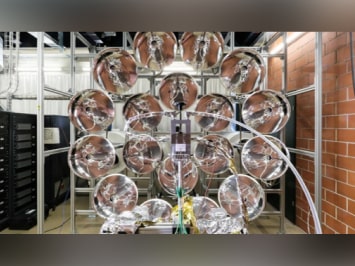
Levelling the seasons - promising innovations in renewable energy storage
In Lausanne Tour B
Renewables are abundant but not always at the right time. The Laboratory of Renewable Energy Science and Engineering (LRESE) investigates the conversion of renewable energies (solar, wind, biomass, hydro and geothermal) into storable fuels, materials and commodities. A special focus lies on novel, solar driven energy conversion processes based on solar thermal, thermochemical and electrochemical processes. The LRESE team will present both research and experimental facilities.
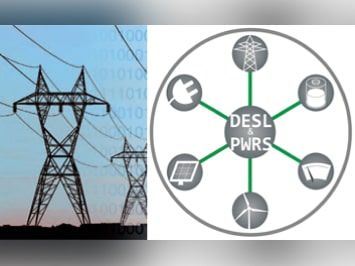
Smart grid monitoring and operation
In Lausanne Tour B
To ensure a sustainable, economic and secure electricity supply, the EPFL Distributed Electrical Systems Laboratory develops advanced smart grid solutions. The main topics of this visit refer to smart grids monitoring and operation technologies. Prof. Paolone's team will present a time-deterministic monitoring system of the EPFL campus used to control in real-time a utility-scale battery energy storage system to achieve multiple control functions.
Lausanne Tour C – Advanced Materials & Construction
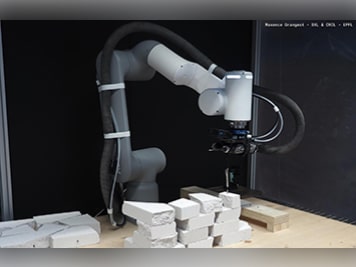
The sustainability potential of robotic construction
In Lausanne Tour C
The Lab for Creative Computation (CRCL) operates at the interface of design, digital technologies and construction. This visit will explore new construction modes that combine robotics with human interventions and digital media, in pursuit of more creative solutions to contemporary design and construction challenges. A particular focus will be given to sustainable construction approaches. The lab will be presented by Professor Stefana Parascho.
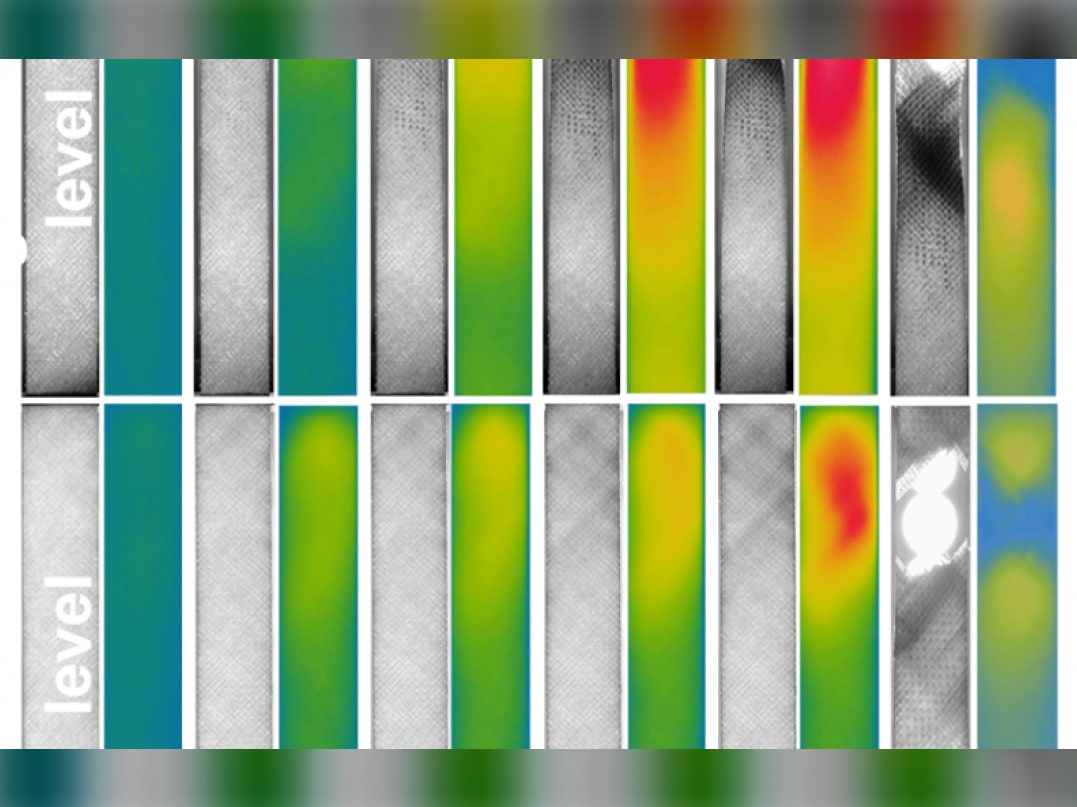
Composite material innovation for renewable energy performance
In Lausanne Tour C
Research at Composite Mechanics Group (GR-MeC) led by Prof. Anastasios Vassilopoulos focuses on the performance of composite materials and their implementation for creating innovative engineering structures. The center of attention is the area of renewable energy conversion systems, wind turbine rotor blades, and offshore composite structures. Explore the challenges tackled in areas such as fatigue and fracture of composites, adhesives, joints and structural components. Like the CRCL, this Lab is part of GIS - a structural engineering platform -, whose work will also be presented.
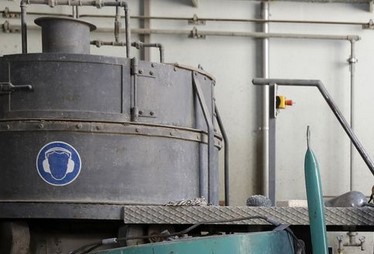
Future cement and concrete
In Lausanne Tour C
Concrete and cement are key contributors to global CO₂ emissions, mainly due to energy-intensive clinker production. As the construction sector faces growing sustainability demands, improving these materials is essential. A visit to EPFL's Laboratory of Construction Materials (LMC) offers insight into cutting-edge research on low-carbon alternatives, recycled aggregates, and optimized formulations. The lab's wide range of testing facilities supports the development of durable, environmentally friendly concretes. This work plays a crucial role in aligning construction practices with energy transition goals and reducing the sector's carbon footprint.
Lausanne Tour D – Daylighting & Solar Boat Challenge
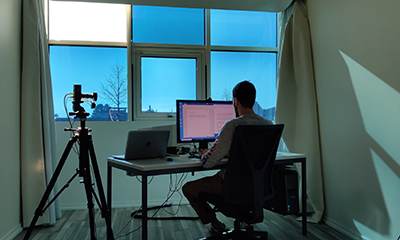
Multiple facets of Daylighting research
In Lausanne Tour D
Framing daylight as a driver of both occupant well-being and building performance, the Laboratory of Integrated Performance in Design (LIPID) focuses on its impact across four dimensions: health, comfort, perception, and energy use. A visit to the lab showcases interdisciplinary research combining quantitative analyses with psycho-physiological experiments involving human participants. Emphasis is placed on linking environmental parameters to user experience, informing the development of design strategies that balance energy efficiency with visual and thermal conditions beneficial to well-being.
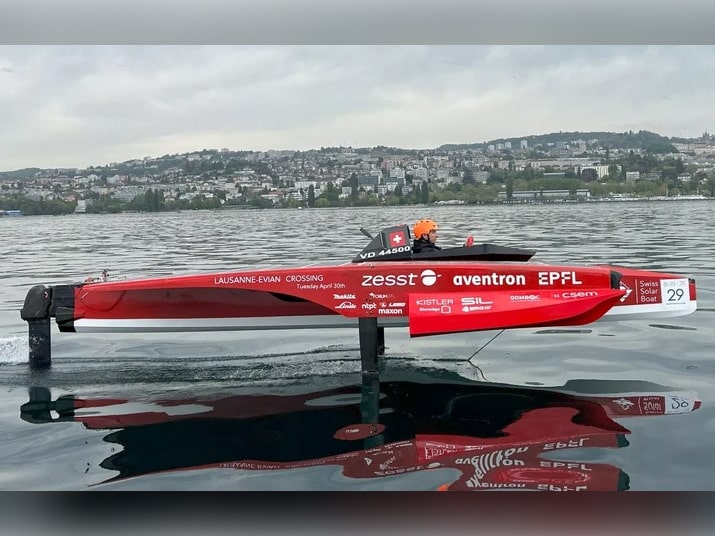
Swiss Solar Boat Challenge
In Lausanne Tour D
Swiss Solar Boat is a student-led EPFL project advancing sustainable maritime transport. Its first major prototype, Dahu, is a solar-powered hydrofoil that gained recognition in international competitions. In April 2024, the team achieved a milestone by completing a 26 km hydrogen-powered foiling crossing from Lausanne to Evian, showcasing hydrogen's potential for clean navigation. Building on this success, the team is now developing the Renewable Energy Foiler (REF), a hydrogen-solar hybrid designed for passenger transport, with a 150 km range and speeds up to 35 knots.
Fribourg Campus Visit
Circular construction – IEQH – Smart Living Lab design
KEY ELEMENTS
- Smart Living Lab project
- Environmental & climatic chambers
- Alternative construction materials
- Build - Unbuild - Repeat - Re-use of building elements
- Occupant centric building design
The EPFL campus in Fribourg is a hub for building related research focused on sustainability. Tour participants will discover research projects and facilities of labs both from EPFL and University of Applied Sciences and Architecture Fribourg as well as innovative developments led by the Building 2050 group, on the basis of which the Smart Living Lab is being built today.
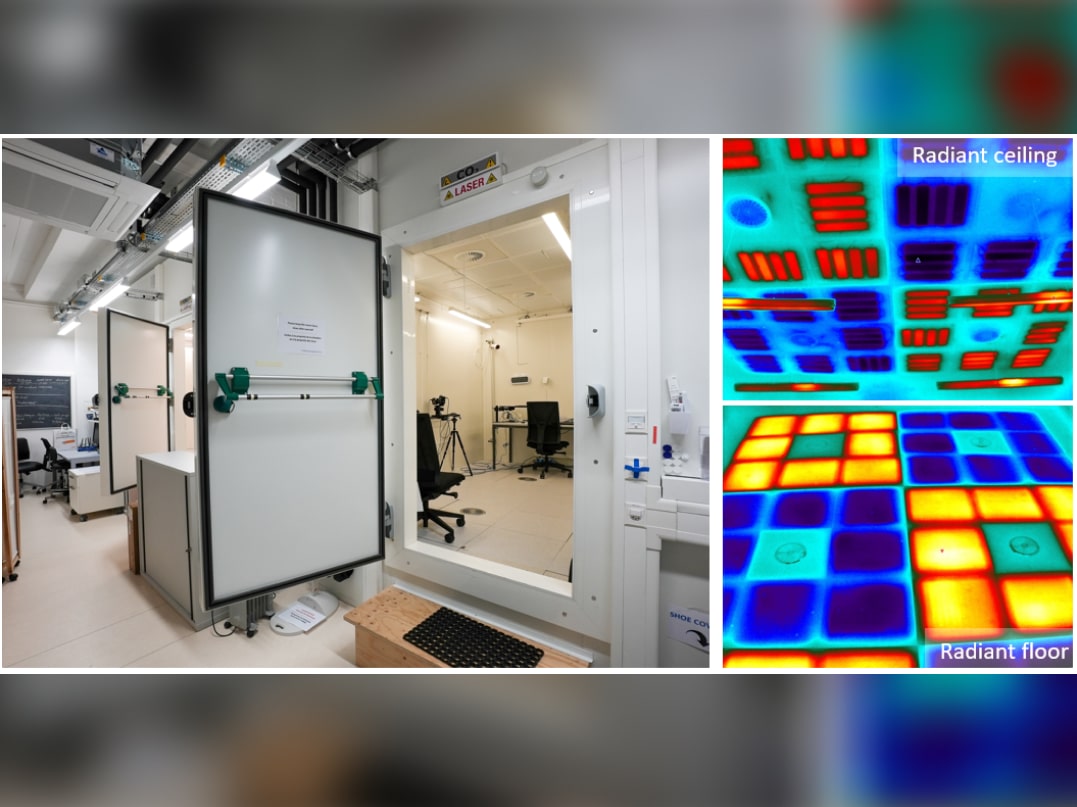
Twin environmental and climatic chambers facility
In Fribourg Tour
Jointly operated by Integrated Comfort Engineering Lab and Human-Oriented Built Environment Lab, state-of-the-art chambers have been designed for studying the combined impact of occupancy, HVAC systems and controls on indoor air quality, human exposure, thermal comfort and energy performance. The chamber can be modified to simulate distinct indoor environments, such as offices, classrooms, residences, hospitals and healthcare facilities, etc. Both the facilities and the experimental research they are used for are showcased.
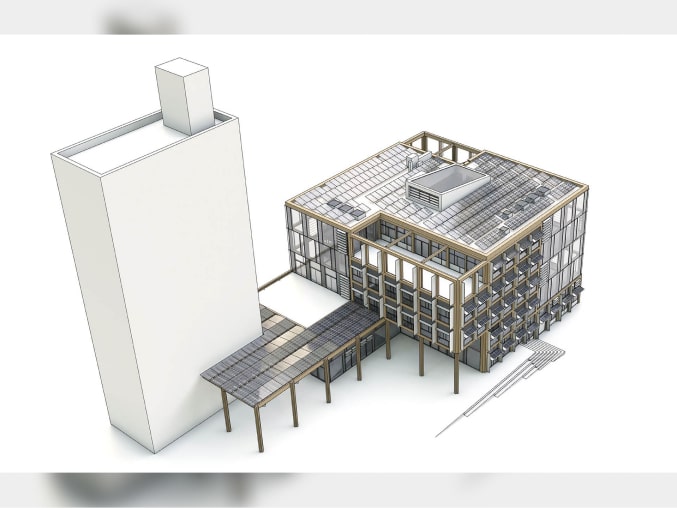
Smart Living Lab project development
In Fribourg Tour
The Building 2050 group laid the foundation for the Smart Living Lab, currently under construction. This future research facility will host several EPFL laboratories and include a comprehensive digital twin and IEQ monitoring system, which will allow testing the newest sustainable building technologies as they are developed. A radon protection project, led by the Transform Institute (HEIA-FR), is also integrated into the infrastructure.

Other exciting research
In Fribourg Tour
- Alternative construction materials: the Institute of Construction and Environmental Technologies iTEC investigates and develops alternative construction materials and elements.
- Build - Unbuild – Repeat: the Structural Xploration Lab supports the construction industry in its transition towards a more circular economy. Re-use of construction elements beyond the drawing board!
- Occupant centric building design: the EPFL ETHOS Lab investigates the complex relationships between human, environmental, and built systems, spanning data science, building engineering/design, and social science.


